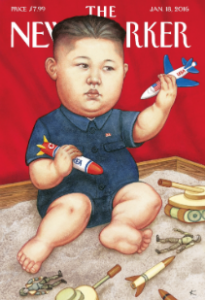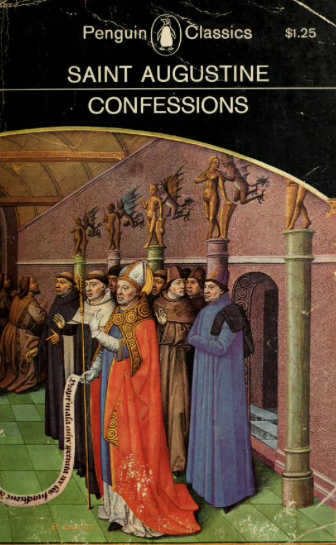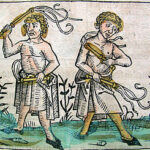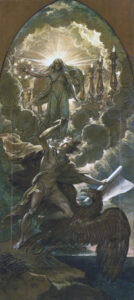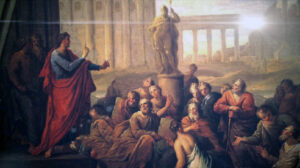of Germanic racial care by medieval Christianity (5)
by Hans F. K. Günther
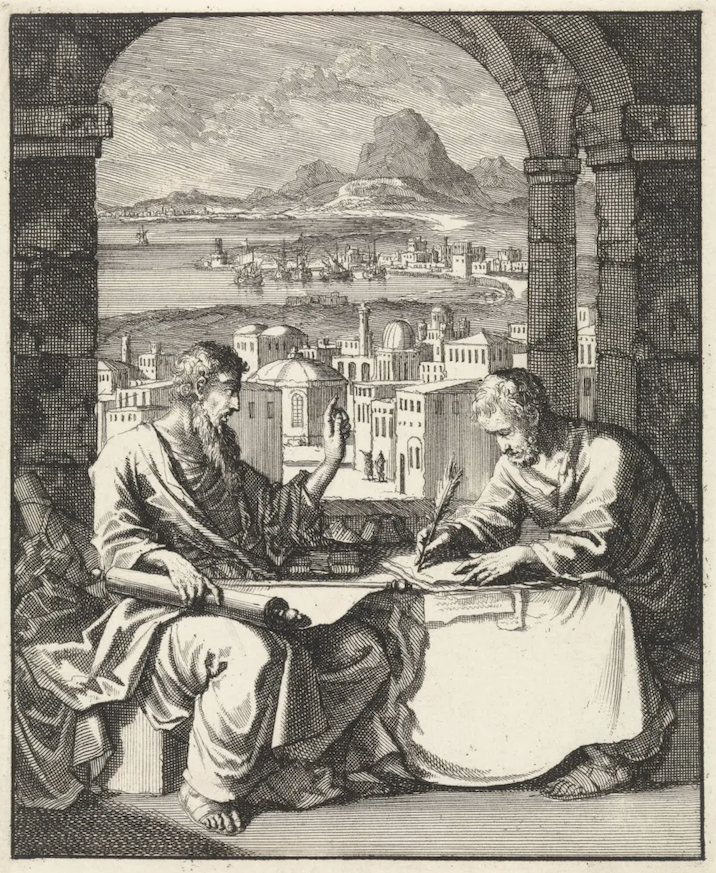
Jan Luyken’s 1698 engraving of the quintessential subversive Jew, Paul, dictating his famous Letter to the Romans to his scribe.
Baher also saw the price of poverty, which must have seemed to the hard-working German peasant the price of inability to work at a time when there was still enough free land to clear and cultivate. For him, poverty was the appropriate fate of the incapable, not the state in which a person was closer to the Kingdom of God. Baher is the price of the weak and sick, the suspicion found in appearance as a sign of spiritual contamination (see p. 377). In the Epistle to the Romans (12:16) Paul warns: Do not aim at high things, but lower yourselves to the lowly – this was the negation of Indo-Germanic values such as pride, the drive for power, the joy of owning land, of competing with all the forces of the region. The medieval pious person was led away from these Indo-Germanic values to values of courage, i.e. according to the root of the word (serve): of being a servile person, of being homeless, celibate and without possessions.
This transformation of values through the ecclesiastical teachings of the Middle Ages was characterized by one of the best experts on pagan Germanic culture, Andreas Heusler:
It is deeply unscriptural that one openly and joyfully admits to pride and the drive for power. Anyone who has what it takes should want to be the first in their region. The sentence that he who humbles himself finds no place in these hearts. The will to power has the affection of the narrator and the listener. With compassion one follows the self-confident man who is bowed down by fate. Something new in the Christian stories is the look of satisfaction that touches the fall of the powerful. To the extent that bias and malicious joy prevail in the sagas, it is directed less against the tyrant and oppressor than against the coward and the quiet, even against the upstart.
The teachings of the medieval church thus dissolved the Germanic focus on a human image of spiritual perfection and a noble lifestyle, and instead taught the characteristics of those who had been described by the Germanic people as litilmenn, as people with small souls. The new doctrine thus eliminated the original model of the volatile, noble and beautiful person. This had to have an effect over the centuries and, together with other historical forces, resulted in us Germans being racially and genetically different from the Germanic peoples.
The racial history of the Germanic people as such ends with the conversion of the Germanic people to Christianity. It begins with the period between the 9th and 11th centuries when the barrier between the free and the unfree, here earlier, there later, at the latest in Lower Saxony and in Scandinavia, there only completely in the 14th century, the mass history of the individual Germanic-speaking tribes, in Germany the racial history of the German people, fell. The German people of the later Middle Ages and the modern era already presents itself as a selection result of those centuries in which the racial breeding of the Germanic people, which had returned to Indo-Germanic roots of the Neolithic period, had been dissolved.
______ 卐 ______
Editor’s 2 ¢
As far as the last paragraph is concerned, since I have Spanish ancestry it came to my attention in William Pierce’s Who We Are and Arthur Kemp’s March of the Titans that the Visigoths of ancient Hispania only began to interbreed after the introduction of Christianity. A century before the Moors invaded the peninsula, these pure Aryans had terrible punishments for the mixed couple who dared to procreate a mongrel baby. Why are these historical facts that Hans Günther and others talked about not mentioned in the forums of the American racial right?
I think we already know the answer…

